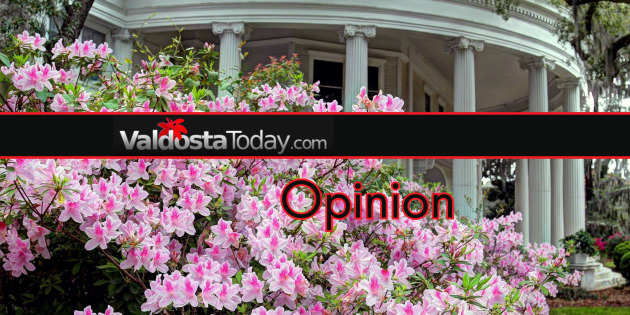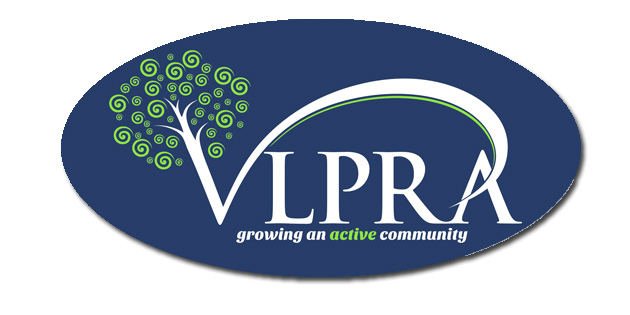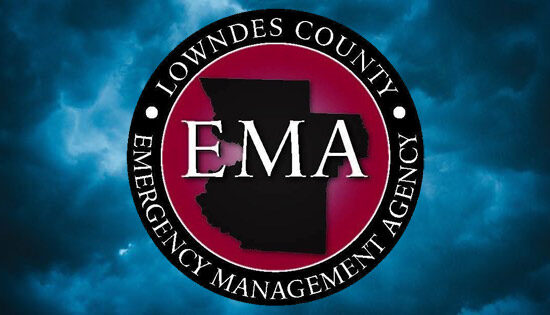Democracy’s Highest Ideal Must Be Respected, Regardless of a Message or Manner of Protest
Nick Rudnik, Valdosta Today Opinion Contributor
In the 2001 drama film starring Jim Carrey, “The Majestic,” we’re taken to California in the early-1950s. Carrey plays Peter Appleton, a young Hollywood screenwriter who learns he’s been blacklisted, accused of being a communist by a congressional committee investigating “subversives.” This sends Appleton into a tailspin. He gets drunk and crashes his car along a California highway. The plot then takes a turn, where stricken with amnesia he heads into the small town of Lawson, California. In a classic case of mistaken identity, the townsfolk mistake Peter for a missing “favorite son,” Luke, a young man long-presumed to be among the town’s many war casualties.
Peter then, having amnesia, assumes the role of Luke, and helps his “father” (that is, Luke’s father) run the town’s motion picture palace, “The Majestic.” By the film’s end, Peter realizes who he really is. And, having assumed the role of Luke—the high-minded, idealistic, forever lost war hero—he decides to return to Los Angeles, where the congressional committee has specially convened. There, likely channeling the patriotic spirit of Luke, he gives a rousing speech on what it means to truly live in a free and democratic society. The committee lets him go, fearing reproach for violating the very ideals—notably, liberty, freedom, and free thought—they purported to be upholding by “outing” anti-government subversives, people who don’t conform to their idea of what’s “right.”
“The Majestic” brings to bear the difficult questions inherent to life in a democratic society.
Presently, the Valdosta community has erupted into a firestorm over several African American men, presumably Valdosta State students, trampling and stomping on an American flag as a symbol of protest against racism and institutionalized inequality. What’s more, the protest was caught on camera, along with the detainment of Michelle Manhart, an Air Force veteran, by university police for refusing to return the flag after she seized it from the protestors. Manhart was not charged in the incident, but she was given a criminal trespass warning.
Flag desecration is among the most controversial of free speech issues. Burning or otherwise defiling, arguably, the single most pervasive symbol of our democracy is to most, including this author, both repugnant and untenable. However, as the Supreme Court in Texas v. Johnson (1989) notes, it is not illegal. Flag desecration, however unsettling, is constitutionally-protected, symbolic free speech.
I was taken aback not only at the flag protest, but also by the response on local social media. Observers pontificated that those who were trampling on the flag need to “get out of” or “just leave” the United States. In other words, if you wish to protest by defiling the flag, you have no place in their society.
While we can certainly feel disgust at the sensational nature of last Friday’s protest, we must also appreciate what free speech means in a democratic society. Free speech can be abrasive, controversial, and in your face. By design, free speech often provokes an emotional response. But as those who see flag desecration as objectionable have a right to voice their opinion in the public square, so do those very protestors who defiled our flag.
This is called democratic pluralism. Our democracy is a consortium of different and differing interests. We may not all agree with each other—I certainly don’t agree with flag burning—but that does not undermine one’s right to engage in civic discourse. Rather, that’s the very reason why robust civic discourse exists, to bridge differences and to better understand one another—even if you object to the form of protest or the message being broadcasted. Free speech is the most consequential right in a free society, for our democracy is grounded in both dialogue and debate. That’s how a pluralist society remedies its differences.
When I see emotional comments on the net in opposition to this sort of behavior, I understand why there are those who are angry. But I also can’t help but feel that civics educators throughout America have failed. They’ve failed to instill a notion of democratic pluralism into their students. They’ve failed to illustrate the double-edged sword that is free speech. And they’ve failed to impart onto their pupils what our flag really stands for.
Our flag stands for freedom. That is, freedom to speak one’s mind, freedom to engage in open dialogue, and freedom to protest and air one’s grievances—even if that means, paradoxically, defiling the very symbol of that freedom. If we are merely a nation of conformity of thought, unquestioned nationalism, and freedom for the few, then are we truly upholding what our flag stands for?
As Peter reminds us in “The Majestic,” dissent is often the greatest form of patriotism. If we cannot accept those who share different views than ourselves, if we cannot accept open and free access to the public square for all, then what does Old Glory really stand for? If free speech is not truly for all, our flag stands for nothing. It is a censor’s tool, a reproach to the high ideals of freedom it’s purported to uphold, and a rebuke to those who so blindly and thoughtlessly defend it.
 Nicholas A. Rudnik is currently pursuing a degree in political science with a concentration in American politics at Valdosta State University. Previously, he’s served as a congressional page in the U.S. House of Representatives during the 111th Congress and in the Office of U.S. Congressman Sanford Bishop. Further, Nick has served on staff at an institutional interest group, the Association of American Law Schools, in Washington and has worked in the private sector. He has presented his research, focused primarily on congressional parties and elections, at regional academic conferences and hopes to pursue a graduate degree in political science. Nick is currently completing two manuscripts relating to southern congressional elections and judicial decision-making in the area of campaign finance; he can be contacted via e-mail at narudnik@valdosta.edu. Follow Nick on Twitter: @NickRudnik
Nicholas A. Rudnik is currently pursuing a degree in political science with a concentration in American politics at Valdosta State University. Previously, he’s served as a congressional page in the U.S. House of Representatives during the 111th Congress and in the Office of U.S. Congressman Sanford Bishop. Further, Nick has served on staff at an institutional interest group, the Association of American Law Schools, in Washington and has worked in the private sector. He has presented his research, focused primarily on congressional parties and elections, at regional academic conferences and hopes to pursue a graduate degree in political science. Nick is currently completing two manuscripts relating to southern congressional elections and judicial decision-making in the area of campaign finance; he can be contacted via e-mail at narudnik@valdosta.edu. Follow Nick on Twitter: @NickRudnik












